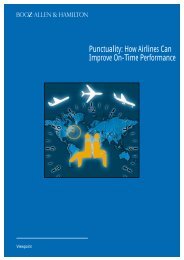The sentence
The sentence
The sentence
You also want an ePaper? Increase the reach of your titles
YUMPU automatically turns print PDFs into web optimized ePapers that Google loves.
<strong>The</strong> form of ‘dare’ as a modal and as full verb<br />
1. We use dare as a modal (that is, without to after it) mainly in the negative to express<br />
lack of courage: I daren’t tell him the truth. I daren’t ask for more money.<br />
2. In the affirmative, we use dare as a modal:<br />
- in questions: Dare you do it?<br />
- with ‘negative adverbs’ (e.g. hardly): I hardly dare tell him what happened.<br />
3. We also form questions with do/does/did: Do you dare tell him? I don’t dare tell him.<br />
4. We can use dare to as a full verb: Do you dare to tell him? I don’t dare to tell him.<br />
5. And note: I didn’t like the meal …,<br />
but I daren’t say so/I daren’t have said so/I didn’t dare (to) say so/I dared not say so.<br />
Uses of ‘dare’<br />
We use dare in four ways to express:<br />
1. courage: Very few climbers have dared (to) attempt Mount Everest without oxygen.<br />
Dare (to) is in the affirmative here, and this use is relatively rare.<br />
2. lack of courage: I don’t dare (to) tell the children that our holiday has been cancelled.<br />
This use of dare (to), in the negative, is the most common.<br />
3. challenge: I dare you to jump off that wall. (Not *I dare you jump*)<br />
We use dare only as a full verb with to for challenging. We use it in the affirmative and<br />
negative like any other verb. ‘Challenging’ is common in the language of children.<br />
4. outrage: How dare you read my private diary! (Not *How dare you to read*)<br />
We use dare only as a modal without to when expressing outrage.<br />
M. ‘Would/wouldn’t; ‘that … should’; ‘there’ + modal<br />
‘Would’ and ‘wouldn’t’ in place of the simple present tense or ‘will’ future<br />
We often use would and wouldn’t in place of the simple present (and sometimes in place of<br />
will/won’t) when we want to sound less definite, or when we want to be very polite:<br />
That seems to be a good idea. → That would seem to be a good idea.<br />
I think Friday will be OK. → I would think that Friday will be OK.<br />
Thursday isn’t/won’t be convenient. → Thursday wouldn’t be convenient.<br />
‘That … should’ after verbs like ‘suggest’<br />
If we put that after verbs like ask, propose, recommend, suggest, we continue like this:<br />
- with should: I suggested that he should apply/shouldn’t apply for the<br />
job.<br />
- with the simple present: I suggested that he applies/he doesn’t apply for the job.<br />
- with the ‘subjunctive’: I suggested that he apply/not apply for the job.<br />
Note on the ‘subjunctive’: In the ‘subjunctive’, the base form of the verb (be, go, run,<br />
etc.)remains the same in all persons. <strong>The</strong> present form is rare in British English:<br />
I suggest you go/he go/they (etc.) go to the meeting tomorrow.<br />
<strong>The</strong> subjunctive form were is used in all persons in the past.<br />
77




